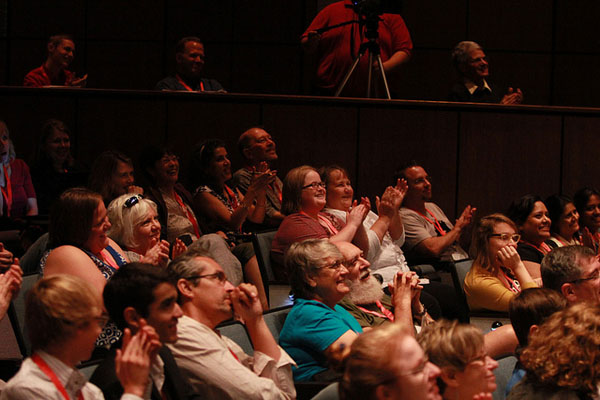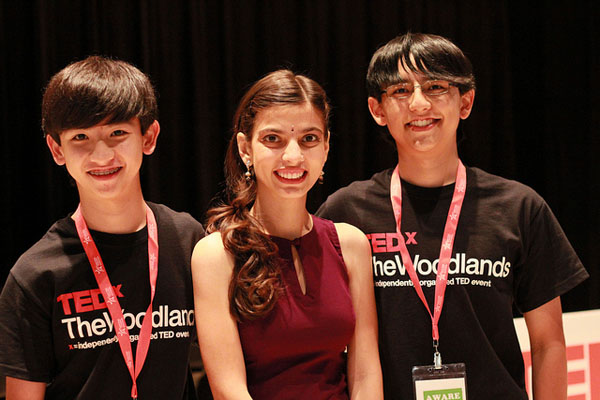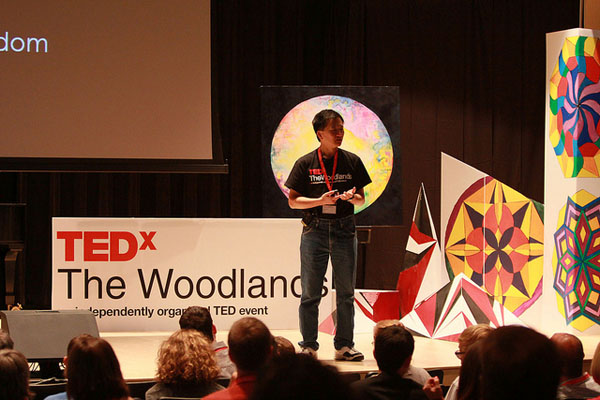Ted
by Andrew Boyd
Today, ideas worth spreading. The University of Houston's College of Engineering presents this series about the machines that make our civilization run, and the people whose ingenuity created them.
I've attended, and given, many presentations in my life. But I recently participated in an event unlike anything I've ever experienced.

The event was TEDx the Woodlands, a regional conference emulating the international TED conferences. When I first received an invitation to speak, I'd never heard of TED, so I of course did my homework. And I came away intrigued.
The first TED conference was held in 1984. Reflecting its Silicon Valley roots, TED began as an acronym for Technology Entertainment and Design. But that's history. TED is now just TED, with the slogan "ideas worth spreading." That pretty well captures its essence. Talks range from artistic to cultural to scientific.

What makes the presentations especially compelling is the focus on grabbing the listeners' attention and driving home an idea. TED talks are videotaped, and the best are available on-line. Speakers have just eighteen minutes to make their case — whether that speaker is Bill Gates, Jane Goodall, or Al Gore. TED organizers recently embraced even shorter talks — some as brief as two or three minutes. (Engines episodes, by comparison, run three minutes twenty-seven seconds, plus or minus a second.) TED talks that find their way onto the Web are professionally screened and edited, and they can be mesmerizing. A New York Timeswriter confesses to occasionally bingeing on them.

The Woodlands event offered titles like: Serendipity, You Don't have to be Creative to be Creative, and Artfully Shaping Our Student's Minds. Presenters included a woman who at age eighteen formed an educational program for poor children in India; a bio-chemist from Berkeley who, among other things, works on bio-fuels; and a middle school student who started the organization Inventors Without Borders. In keeping with the approved TED format, the presentations were interspersed with occasional music or dance.

I admit I was initially hesitant about participating. It all seemed a bit new-age — certainly nothing like academic or business conferences, where music is reserved for cocktails and dancing for late nights on the town. But I'm glad I overcame my trepidation. It allowed me to connect with a group of creative, thoughtful, energetic people — and that's always a day well spent.
For my part, I tried to provide some insight on the conference theme: the Kaleidoscope Mind. I'm frequently asked, "where do you come up with those ideas for Engines episodes?" Well, here's the secret: I'm always on the lookout, and if I think of something, I write it down. That's because over the years I've learned an important lesson: A kaleidoscope creates its images with reflection, but it all starts with shiny things at the bottom of the can.
I'm Andy Boyd at the University of Houston, where we're interested in the way inventive minds work.

Notes and references:
I'd like to express my appreciation to the volunteers, sponsors, and participants of TEDx the Woodlands for such an enjoyable day. Special thanks to Peter and Fabian Fernandez-Han who organized the conference.
V. Heffernan. Confessions of a TED Addict. The New York Times. January 23, 2009. See also: https://www.nytimes.com/2009/01/25/magazine/25wwln-medium-t.html. Accessed October 4, 2011.
All pictures are by Javier Fernandez-Han and can be found at the flickr Web site https://www.flickr.com/photos/tedxthewoodlands/. Accessed October 4, 2011.
This episode was first aired on October 5th, 2011